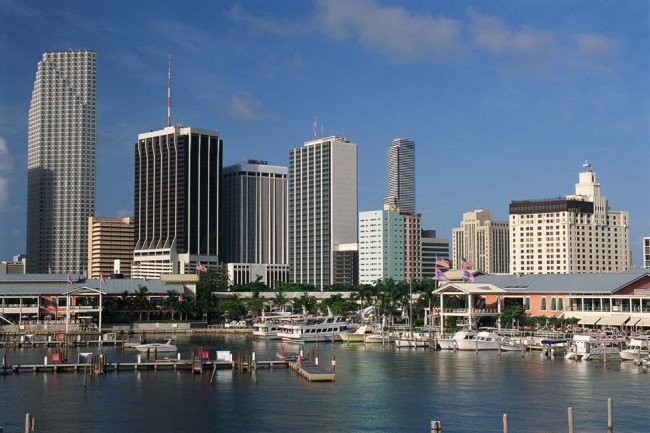
Oscar, 73, remembers the rainy dawn on which he left Havana on a tiny, broken-down fishing boat. Fifty long, hard years have passed. Now, seated at a bar located on the 36th floor of the Focsa, the tallest building in the capital, drinking a daiquiri and contemplating an impressive view of Havana’s harbor, he feels he’s missed a lot.
“I’m a dollar with legs, a kind of King Midas. But with respect to historic memory, you can’t forget all the abuse from the government of Fidel Castro towards those who emigrated”, he comments.
When one has lived so long a time far from their homeland, the slightest detail whatsoever brings a knot to the throat or a tear. The barkeeper asks him if the cap he wears is from the Havana Lions, one of the four clubs from the professional baseball league before 1959.
Proudly, Oscar tells him yes and during the next half hour converses with the barkeep about the ball that used to be played on the island. They finish, like they always conclude their chats between Cubans of the two shores, drinking rum and crying.
After the nostalgic bath, the Cuban-American stops in front of the immense picture window that shows the beauty of Havana. “Nothing has changed. It’s dramatic. When I got to Florida in 1960, Miami was a desolate suburb. There was only one restaurant for creole food, ‘La Cubanita’. After 10 at night, it seemed like a ghost town. There was a strong racism, with buses where the blacks traveled standing in the rear”.
He pays the bill and asks me to accompany him to walk through Luyanó, the neighborhood where he was born. Meanwhile, he continues, “In 52 years, Miami has grown in a spectacular manner. Every day a new building appears. Architecturally speaking, nothing has been done in Havana. It’s the same, or worse — the same buildings are there without having given them proper care. It’s the brutal difference between two systems. A capitalistic one in constant renewal, which throws aside what it doesn’t need, and a Marxist socialist system that in theory can be very humane, but in practice, doesn’t work”, and he points out a group of houses in danger of collapse.
The emigration that has in 52 years provoked the departure of more than a million islanders to the Florida coast has many explanations. According to Roberto, a 55-year-old economist, it’s not easy to explain how it is possible that those Cubans in the US produce goods and services that triple the gross domestic product of Cuba.
“You can spend hours trying to convince a listener that the embargo is to blame, or what have you, but the real figures are forceful. Cubans in a climate of democracy and a free market evolve efficiently. We aren’t a gang of unproductive bums. When people see the result of their work, they strive and generate wealth”, the economist points out.
Among the thousands of his compatriots who fled the island when Castro took a turn towards communism, there are two who are a paradigm. The USA isn’t a panacea, but it is a country of opportunities. If you work hard, dreams can come true.
The same as Oscar, Mel Martínez abandoned his homeland in 1961. He was 14 years old and traveled alone on one of the flights of Operation Peter Pan, a program supported by the Catholic Church that brought 14,000 Cuban children to the United States. He ended up a Senator and became the first Hispanic to arrive in the Upper Chamber. Years later, Mel relates that he lived with a family in Orlando and couldn’t be reunited with his parents until 1966. He learned the language and the customs, and was able to have a successful career in exile.
Roberto Goizueta also arrived at the top, if by a different path. He was a director of Coca Cola and today, after his death, he is considered an example of a good administrator and an upright man.
The majority of Cubans who leave don’t earn millionaires’ salaries, nor do they have residences on Miami Beach. They have as many as three jobs, they don’t forget to help their families in Cuba, and there always exists the possibility of progressing and getting ahead.
Let’s share the ideology. Enough of looking at current photos of Havana and Miami. The social justice and equality preached by the Castro brothers’ revolution are attractive ends.
But they haven’t allowed Cubans on the island to live at the height of their expectations. Neither has the utopian argument brought enough food to the table. People aren’t stupid. And because of that, they leave.
Translated by: JT
March 6 2011
